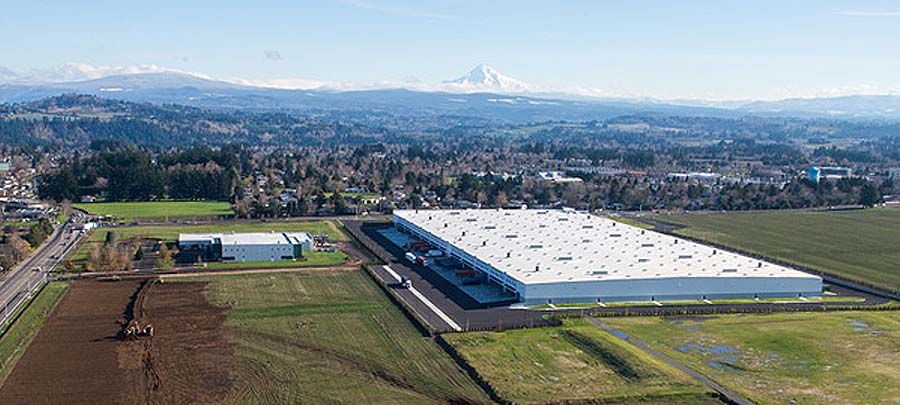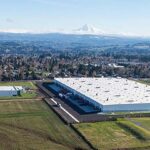Lack of investment and shovel-ready land has stymied development in the East metro region.
Mayor Shane Bemis and Jarvez Hall, East Metro Economic Alliance director, are bullish on prospects for new development.
“If East County was stock, we’re a strong buy,” Hall says.
But it’s unclear if the rhetoric matches reality.
The city’s new 601,000-square-foot Subaru distribution center is often touted as an indicator of Gresham’s vibrant appeal to developers. The facility opened last October and began ramping up operations in February.
Bemis says the region is taking a more aggressive approach to development. He cited as an example the 66 Day Industrial Review Process, which streamlines the permitting process for industrial development and guarantees a decision in 66 days or less.
“Our organizational culture and DNA is focused on the importance of attracting new jobs, and that manifests in cross-departmental cohesion and cooperation in opening our doors to jobs and investment and working as quickly and creatively as possible,” Bemis says.
Bemis says the business-friendly culture has helped attract 28 new companies to Gresham in the last two years and encouraged 35 companies, including Boeing and Teeny Foods, to commit to significant expansion projects.
“We’ve seen 600,000 square feet of industrial space built, and more than one million square feet of additional space is being constructed,” Bemis says.
Some of Portland’s trendier brands, including Killer Burger, are opening outposts in the East County city.
At the same time, existing companies say they like the strong, established technological infrastructure, a skilled workforce and access to suppliers.
ON Semiconductor, which opened up shop in 2006, has invested $290 million so far into the factory. Tad Dierckes, ON director of operations, says the workforce and community are favorable enough to spur additional investment.
“We plan to continue to expand here, increasing production, installing new technology and training to ensure that in training our workforce to meet the demands of modern manufacturing,” Dierckes says.
Bemis says one of the biggest opportunities is the Gresham Vista Business Park, the 221-acre park where Subaru located last year.
“We are working with our partners at the Port of Portland to market this site,” Bemis says. “While I can’t report on anything yet, we continue to be quite confident that the site will continue to attract new investment in Gresham.”
There may be plenty of future potential in Gresham, but the reality is most of the Vista Business Park remains empty.
Many of the most promising projects reside outside the city’s boundaries. Amazon signed on to Troutdale’s Reynolds Industrial Park last month, the Yoshida Group is progressing with lofty plans for a hotel on the Sandy River and the Grand Ronde Tribe is moving forward with its plans to renovate the abandoned Multnomah Greyhound Park in Wood Village.
These projects are certainly good for the region, but leave Gresham’s coffers wanting more.
Hall concedes that capacity and shovel-ready land will always be a challenge. But he insists “that our area is the best kept secret.”
Bemis says land in the Springwater area offers plenty of potential for development. “But getting that land shovel ready for developers with freeway access, water, sewer and stormwater systems is challenging with the resources we have locally,” he says.
Hall says he likes to remind people that economic development requires involvement from multiple stakeholders.
“A lot of people assume it’s just businesses,” he says.
“But it [takes] everything from business to education to restaurants and hotels … to build the type of robust community that we want. If we continue to reinforce that, then a lot of positive things can happen.”




